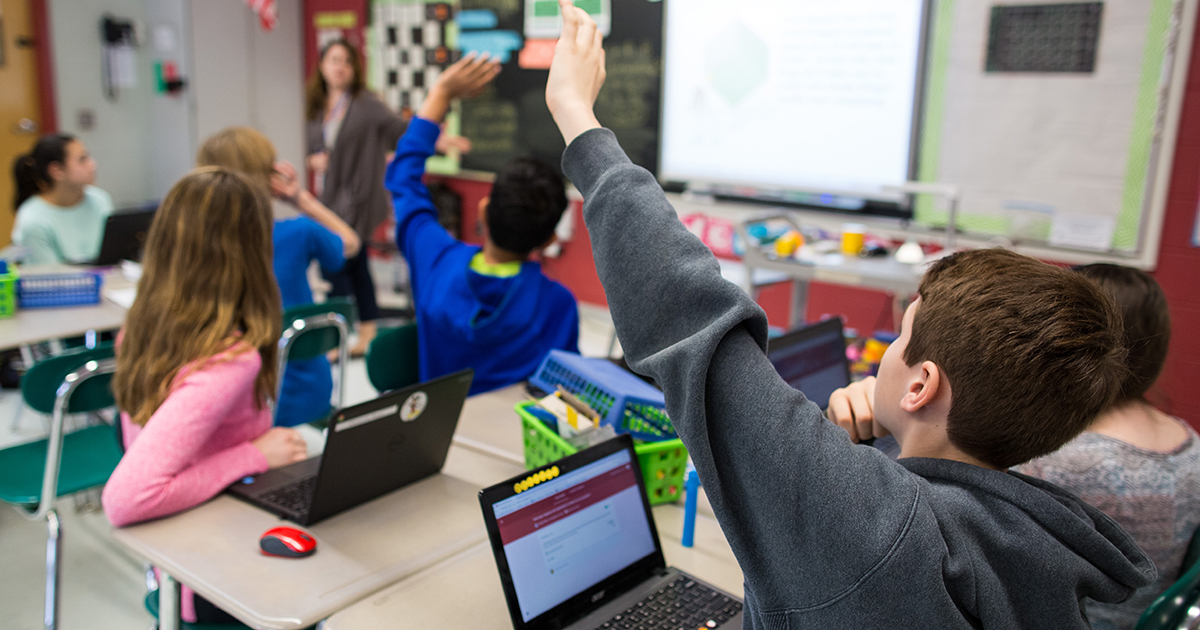Education
A long road back for education

EVEN before schools find out what the new normal will be, the pressure is already on the education system to deliver significantly more.
Some talk about a ‘lost generation’ needing to ’catch-up’ amid concerns those comments stigmatise children. However, the reality is that children have missed months of face-to-face teaching, and that has inescapable consequences.
DISADVANTAGED SLIP FURTHER BEHIND
Wales’s learners have been part of the pandemic’s ‘collateral damage.’
Although, for now, there are more questions than answers, solutions to repair that ‘damage’ will need to be carefully considered and delivered during the Welsh Parliament’s sixth term.
Even before the pandemic, Wales already faced an uphill struggle to secure good educational outcomes for all its learners.
The most disadvantaged learners have extra challenges which can prevent them from achieving their full potential.
Even though the previous Welsh Government invested £585 million since 2012 through the Pupil Development Grant (PDG), the attainment gap it was seeking to close, didn’t narrow.
It also typically widens as learners get older.
There’s a stark difference between children eligible for free school meals and their peers at Key Stage 4, the two years where learners usually take GCSEs and other examinations.
Children and young people themselves are well placed to give their verdict.
A 2021 Children’s Commissioner survey of 20,000 children found that 35% didn’t feel confident about their learning, compared to 25% in May 2020.
63% of 12–18-year-olds were worried about falling behind.
There are countless reports setting out adults’ views about how missing more than half a year of ‘face-to-face’ schooling has affected learners.
One of the major concerns is the variation between what schools have delivered to pupils.
There’s a long list of potential impacts:
· ‘Lost learning’ meaning pupils could underperform academically and have their long-term prospects affected.
· A loss of confidence in the examination and assessment system.
· Long-term reductions in school attendance, a factor known to be key to educational outcomes.
· Difficult transitions between school years and from primary to secondary.
· Challenges in re-engaging learners and addressing low motivation.
· An unhelpful ‘catch up’ narrative about lost learning placing unnecessary psychological pressure on children and young people; and
· A negative effect on learners’ ability and confidence to communicate in Welsh where they haven’t been able to do so at home.
WIDER EFFECTS
As well as these obvious educational issues, there are wider predicted effects.
Current learners could earn less, with one estimate of up to £40,000 in a lifetime.
The harm to children’s physical health and a higher prevalence of mental health issues, including anxiety and depression, are also serious concerns.
The pandemic’s wider economic impact is also likely to increase the number of children living in low-income families.
Again, it’s the most disadvantaged learners who are predicted to bear the brunt in the longer term.
For example, in March 2021, the Child Poverty Action Group found that 35% of low-income families responding to its UK wide survey were still without essential resources for learning, with laptops and devices most commonly missing.
The Fifth Senedd’s Children, Young People and Education (CYPE) Committee heard that there is “plenty of evidence” that” there are striking differences between families in terms of their ability to support young people in their learning: the resources they have around them, the enthusiasm, the engagement, the commitment”.
REBUILDING TRUST
There must be work to rebuild relationships that have been under significant strain during the past 12 months.
Those between teaching unions and the decision-makers within the education system; between parents/carers and schools; and perhaps, most importantly, re-establishing the relationship between learners and their teachers.
Some of the immediate solutions which are already on the table or up for discussion are: more money, including the ‘Recruit, Recover and Raise Standards funding’; more teachers and learning assistants on the ground; changing term times; and setting up summer schools, holiday clubs and home tuition.
However, the longer-term problems are far harder to solve.
One estimate puts the cost of Wales’s journey back from COVID-19 at £1.4 bn to meet the challenges to the education system alone.
The opportunity exists for major reform and an examination of the whole approach to and aim of education.
Children and young people’s return to the classroom has been heralded as a big chance to put their well-being at the heart of education. As well as having a positive impact on well-being, put, mentally healthy children are much more likely to learn.
Following pressure from the Fifth Senedd’s CYPE Committee and its stakeholders, Wales has already made a significant shift towards establishing a ‘Whole School Approach to Mental Health’. The challenge during the Sixth Senedd will be to deliver it.
PERMANENT CHANGE
The potential sting in the tail is that, at the same time, the education system is getting children back to school, it also contends with major legislative reform.
This is in the form of wholesale changes to both the school curriculum and support for learners with Additional Learning Needs.
Some may argue that there’s been no better time to have such significant changes.
If the education system can successfully implement these three major reforms, arguably Wales will complete significant leg work and be on a firmer footing to meet the challenges presented by Covid-19.
At this stage there may be many more questions than answers for the education system.
The world into which learners will move has changed forever.
Not only has the pandemic interrupted their schooling, but the future journeys they were expected to make into the workplace or further and higher education could be unrecognisable.
The skills and aptitudes needed in the ‘new normal’ are only now beginning to be identified and are likely to be different from those needed before the pandemic began.
Education
Research reveals nearly half of children in Wales had additional learning needs

A NEW study has highlighted the prevalence of additional learning needs, formerly known as special educational needs, among under 16-year-olds in Wales. The findings come with a policy briefing, calling for a robust review of processes used to recognise such issues and more inclusive learning support for all children nationally.
The research and policy reports, led by the University of Bristol and funded by the Nuffield Foundation, found nearly half (47.9%) of children born in 2002/2003 were identified with some form of additional learning needs (ALN) at some point during their schooling. This was shown to have the biggest impact on academic achievement across all Key Stages of their education.
Lead author Dr Cathryn Knight, Senior Lecturer in Psychology of Education at the University of Bristol, said: “Our findings clearly challenge the notion that learning needs only affect a minority of learners. Key common factors increasing the likelihood of being identified with SEN also emerged, emphasising the importance of recognising the child’s environment and understanding their individual situation to effectively support their learning needs.”
Researchers from the University’s School of Education and Swansea University analysed data from more than 200,000 children in Wales, born between 2002 and 2009, to understand the levels of SEN and its impact on academic achievement.
Findings revealed that the earlier the additional needs emerged and were recognised, and the longer their education was spent with these known needs, the less likely they were to meet nationally expected levels of attainment.
Dr Knight said: “Our research suggests the former SEN system in Wales was unable to effectively support students to mitigate the negative impact of SEN on their grades. This underscores the substantial toll of SEN on academic achievement. To improve academic attainment levels in Wales, it is crucial to prioritise effective support for this very large group of learners.”
Learners having free school meals (FSM) throughout their education were found to be four times more likely to be identified with SEN compared to those not in receipt of free meals. Those born in the most deprived neighbourhoods were shown to be even more likely (4.6 times) to be identified with SEN.
The study also showed boys were much (5.5 times) more likely to be identified with SEN than girls. Children with higher school attendance had a lower likelihood of SEN identification and learners born in the summer, so younger in their year group, were three times more likely to be identified with SEN than those born in the autumn.
Dr Knight said: “This raises concerns about the effectiveness of SEN identification processes, particularly given the unexpectedly high number of learners identified with SEN. It suggests a potential issue of over- or under-identification of certain children.”
The main policy recommendations in the report were to prioritise inclusive educational initiatives that recognise and support all children. The substantial impact of SEN on children’s grades, raises questions about how children with learning needs can be supported to show progression within the education system. Therefore, consideration of more inclusive assessment practices is recommended. The report also calls for current methods used to identify learning need to be rigorously reviewed, with a new focus on ensuring accuracy, fairness, and inclusivity.
The research mirrors similar national findings. Evidence from the Education Policy Institute in England also found a high level (40.7%) of SEND (Special Educational Needs and Disability) identification. Other research, published in the British Educational Research Journal, has also shown that children with SEND in England are also far less likely to meet expected learning standards than their peers at Key Stage 1.
Dr Knight said: “We also need longer-term evidence within Wales and across the UK in order to develop a fuller understanding of the challenges. This includes possible systematic issues with how learning needs are recognised and their subsequent impact on attainment.”
Education
School children focus on Pembrokeshire’s renewable energy future

FENTON COMMUNITY PRIMARY SCHOOL welcomed renewable energy experts to help Year 5 and 6 learners broaden their knowledge as part of their Marine Energy Project.
During the summer term Blue Gem Wind, Pembrokeshire Coastal Forum and the Darwin Experience have discussed Pembrokeshire’s importance in the renewable energy sector and low carbon technologies with the school children.
Learners designed and built models of different anchorage structures for offshore turbines, and learnt from the Darwin Centre about the different marine organisms that might colonise them.

They pitched their design ideas, with a combination of class designs being built and deployed at the Marine Energy Test Area (META) in Milford Haven by Pembrokeshire Coastal Forum.
The visits have inspired many new ideas and possibilities for the future of the learners.
Summer Marshall (Year 6) explained: “It was a great opportunity for our designs to be actually made into something for a real-life purpose.”
“If it wasn’t for this project I wouldn’t have learned about the importance of marine habitats and how these are linked to our future,” added TJ Hill (Year 6)
“It is really important because a lot of future jobs will be based around renewable energy and technology,” said Milly Badger (Year 6).
“From having Blue Gem Wind, META and Darwin visit, it’s made me think about a job in renewable energy,” added Oscar Davies (Year 6).
Acting Executive Headteacher Gareth Thomas said: “The project has enabled development of careers and work-related experiences with our learners. Direct industry engagement has been crucial to motivate our learners to think about the future jobs in Pembrokeshire and the life they may lead here.”
Year 5 and 6 teachers Leah Hackett, Matthew Vaughan and Mike Lowde agreed that many of their pupils could work in the renewable industry in future.
“Hopefully, after this, we have a group of enthusiastic pupils who already have a keen understanding of the benefits of renewable energy and the place it holds in Pembrokeshire and the wider world,” they added.
Education
Pupils delight in ice cream treat from Pembrokeshire’s number one van

CHILDREN at Ysgol Caer Elen in Haverfordwest were treated to a delightful surprise on Tuesday when they were all given the opportunity to enjoy ice cream, generously provided by Mr McGeown and his family.
The delicious ice cream, a highlight of the school’s summer celebrations, was not just a treat for the pupils but also a testament to the McGeown family’s commitment to supporting educational projects. The funds raised by the family have been donated to the school, aimed at enhancing various school initiatives.
The joyous event was made even more special by the efforts of volunteers Martin, Sian, Amirah, Jack, and Alyannah, who served the ice cream. Their contribution ensured that the occasion was filled with a wonderful and happy atmosphere.












The school extends its heartfelt thanks to Mr McGeown and his family for their generosity and support. Their donation will play a crucial role in the continued development and success of school projects, benefiting all pupils.
“We are incredibly grateful to Mr McGeown and his family for their kindness and support,” said Mr Dafydd Hughes, the headteacher of Ysgol Caer Elen. “The ice cream treat brought immense joy to the children and added to the spirit of our summer celebrations.”
Ysgol Caer Elen, a pioneering Welsh-medium school catering to students from ages 3 to 16, prides itself on its vibrant community and commitment to high-quality education in Pembrokeshire. The school’s ethos centres on creating a caring and inclusive environment where every pupil is encouraged to achieve their best and develop their skills for the 21st century
The community looks forward to seeing the positive impact of the McGeown family’s contribution, as the school continues to thrive with the support of dedicated and caring individuals.
-

 Education5 days ago
Education5 days agoMilford Tesco worker achieves Oxford dream and lands top legal job
-

 Crime4 days ago
Crime4 days agoHaverfordwest man admits having nearly 1000 child and animal images
-

 Crime4 days ago
Crime4 days agoYouth set to appear in court over serious sexual offences
-

 Crime4 days ago
Crime4 days agoPolice investigating after man injured during altercation in cemetery
-

 Education4 days ago
Education4 days agoPupils delight in ice cream treat from Pembrokeshire’s number one van
-

 Crime4 days ago
Crime4 days agoTown centre ‘stinking of skunk’ as police strip cannabis farm
-

 Crime3 days ago
Crime3 days agoFag-butt police court summonses spark debate in Pembrokeshire
-

 News6 days ago
News6 days agoProposal to give firefighters a council tax discount to go to Cabinet










































